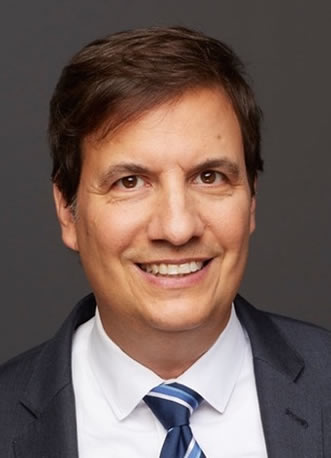Reference
Breed C, Bereznay C. Treatment of depression and anxiety by naturopathic physicians: an observational study of naturopathic medicine within an integrated multidisciplinary community health center [published online ahead of print February 6, 2017]. J Altern Complement Med.
Design
Observational study
Study Objective
To determine whether whole-person, naturopathic interventions have a measurable effect on patients with anxiety, depression, or both.
Participants
Study participants were usual patients of naturopathic care within the Health Point system, a nonprofit community health care center network located in suburban King County, Washington. Average age was 44 years; participants were predominantly female and English-speaking. One-third identified themselves as Hispanic, and half had an earned income at or below the federal poverty level.
Method
This 26-month study was conducted from December 2009 through February 2012. A total of 60 patients met the study eligibility criteria of at least 2 visits during the study period. The mean number of visits per patient was 3.3. All 60 participants saw a naturopathic physician, with visits lasting an average of 30 minutes. Patients also received concomitant team care from other providers: conventional medicine providers (55%), behavioral health consultants (55%), nutritionists (12%), and/or acupuncturists (5%). The top modalities used included nutritional supplements, such as vitamins and minerals (75%), pharmaceuticals (32%), homeopathic medicine (30%), herbal medicine (25%), and acupuncture (20%).
Outcome Measures
The Patient Health Questionnaire (PHQ-9) and the Generalized Anxiety Disorder 7-item scale (GAD-7) were used to screen for depression and anxiety, respectively.
Key Findings
Comparison of average initial and final screening scores showed highly significant improvement (P<0.0001) for both anxiety and depression: 16.4 vs 8.6 for PHQ-9 and 12.4 vs 7.2 for the GAD-7. Response rate was defined as a 50% decrease in personal scores in PHQ-9 (depression) or GAD-7 (anxiety). Using this response rate, in those with baseline scores >10, response rates were 58.6% for depression and 50% for anxiety.
Practice Implications
Depression is the leading cause of disease burden in middle- and high-income countries, and anxiety affects about 1 in 5 people.1 Ideal treatments are safe and effective in the long term and do not have side effects. When it comes to depressive illness, efficacy of pharmaceutical antidepressants is limited. About 70% of patients prescribed antidepressant medications for mild to moderate depression do not respond to therapy.2 Mild to moderate depression comprises the majority of cases for which prescription medications are used. There is a growing recognition that full remission with pharmaceutical treatment is either short-lived or absent, and for those who do respond, 25% experience drug tachyphylaxis (a rapid decrease in response to a drug after its administration) at some point during treatment.3 Patients with anxiety do find robust efficacy over placebo for short-term symptom management using anxiolytic medications.4 However, these drugs are fraught with side effects, and long-term use may eventually lead to dependence, resistance, withdrawal syndromes, and even an increased rate for all-cause mortality,5 including dementia6 and cancer.7
Overall, this study sends a signal to the clinical world of psychiatry to look beyond neurotransmitters and embrace a naturopathic and holistic approach.
Whether the problem is anxiety, depression, or anxious-depression (which features both anxiety and depressive symptoms), the current conventional wisdom of attempting to balance neurotransmitters by using pharmaceutical agents is severely limited. For these conditions, naturopathic medicine has a great deal to offer, as these mood disorders are a culmination of numerous factors, including blood sugar fluctuations, sleep challenges, inflammation, nutrient deficiencies, hormonal imbalances, stressors, imbalances of sympathetic and parasympathetic response, and hypothalamic-pituitary-adrenal axis dysregulation.8
Overall, this study sends a signal to the clinical world of psychiatry to look beyond neurotransmitters and embrace a naturopathic and holistic approach. A strength of this study is its inclusion of a lower-income population, a group known to be more challenging to treat effectively. Also, this study corroborates 2 other previously published studies. One was a 2014 Australian observational pilot study that evaluated 31 consultations in 15 patients. This study found a potentially beneficial effect of naturopathic medicine for improving depression, anxiety, and stress reaction. A second study, an 8-week Canadian study conducted in 2009, evaluated 75 participants and found significant improvements in anxiety response with naturopathic care.9
One limitation of this study is its size. While this work is quite positive and significant, it is still a relatively small study. Of note, another 62 patients were enrolled but did not complete the second visit and so were not eligible for inclusion. It is also limited because, as the authors also point out in the discussion, there was no control group or randomization, leaving the possibility of selection bias.
This study did not merely look at a single monotherapy (eg, St. John’s wort). Instead it involved a naturopathic-based paradigm, an important and welcome seminal step towards clinical acceptance of a systems-based and more functional approach to management of anxiety and depression. My hope is this work will spur on more studies that look closely at the paradigm of naturopathic care for mood disorder, to further our ability to assess individual patients and provide individualized care based on each patient’s needs.
This work contrasts with the current “gold standard” studies that follow the double-blind, randomized, placebo-controlled method of evaluating therapies. While the gold-standard types of studies work well for assessing single agents in the absence of any other changes in care, they do not cultivate an integrative program designed for each patient that truly addresses the complexity of multiple underlying factors and needs. In this author’s opinion, the evolution of naturopathic paradigm studies like this one should serve as the new “platinum” standard for the future of medical research for treatment of mood disorder.






